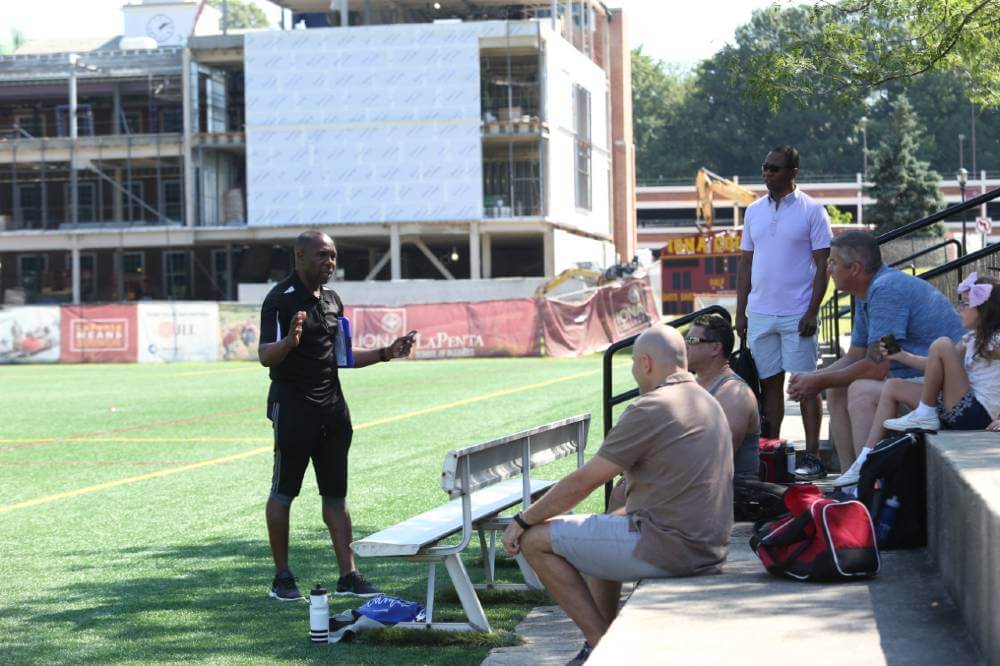Handling Parents

“The toughest thing kids have to face is the unfulfilled lives of their parents.” – John W. Gardner.
Parents can be an enormous liability or a rewarding asset. There is no way around, parents are an integral part of the youth soccer landscape.
Learning how to manage your parents is important to have a successful season. That said, you will never have all parents in agreement. What’s important is that you have a majority, and most importantly the influential ones on your side.
Loss Battle
I have experienced several confrontations with my team parents during my early coaching years. It took several years to learn it was not worth the hassle, regardless of my argument which was based on facts.
Case in point, I remember one dad was frustrated that one of our trainers. He claimed the trainer was not coaching their child during practice. He wanted to see the trainer more enthusiastic and issuing instructions. We got into a heated conversation.
The irony of the story, a few years later, this parent became the director of the program.
I have experienced a similar situation in coaching teams.

No Parents, No Team
Are your parents a constructive force or a nagging problem? Do you find yourself getting into conversations about playing time, team lineups, positions, and your management of the game? A common theme of conversation among coaches is the problem of how to manage their parents.
Managing Parents

Parents want to feel valued, included and feel that are a part of a successful team. They want to believe their contributions are making a positive impact on the development of their child.
As a coach, you need to undertake steps to help your parents become a constructive force for the team. Your parents can be an invaluable resource that leads to a strong coach-parent relationship.
How To Make Parents Become A Positive Force

- What Do Parents Want?
– Communication (in-the-loop) – timely scheduling
– Hear good things about their child making progress (note-taking important)
– Watch their kids playing - Parent Education
Let your parents know what are your – values, philosophy, knowledge, and expectations. Explain how you plan to improve their child. - No Child In The Middle
Ask parents to communicate directly with you. Ask them not to complain to their child, but have a conversation with you. - Feedback
Ask your parents to share feedback, not specifically on games, put on issues that could affect their child’s performance or their behavior. For example, suppose the child has a hearing impediment. Not knowing could have you believe the child does not pay attention. - Coaching
Explain to your parents the effects of sideline coaching on their child. Share with them the difficulty their child experiences when he/she is trying to follow the team’s instructions, and at the same time listening to parents’ advice.
A Force To Be Reckoned With
Parents can play a positive and active role in their child’s team. It is important to connect with your parents every season to not only learn about their child but to know about them.
Parents who are inspired, informed, and involved can become an active and constructive force for the team.
References
Positive Coaching: building character and self-esteem through sports. Jim Thompson
Leave A Comment